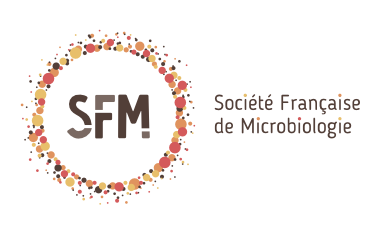Title:
“Physiology of new hydrothermal microorganisms able to disproportionate inorganic sulfur compounds”
« Physiologie de nouveaux microorganismes hydrothermaux capables de réaliser la dismutation du soufre »
Scientific context:
Sulfur disproportionation is a metabolism rather original, rather poorly characterized and which has been recently discovered at high temperature. Microorganisms able to disproportionate inorganic sulfur compounds can use a same molecule as electron donor and acceptor (elemental sulfur, sulfite, thiosulfate) to produce energy. Sulfur disproportionating microorganisms known so far are all bacteria and are present in a wide diversity of environments (Ollivier et al. 2018). Moreover, sulfur disproportionation could be one of the first primitive microbial metabolism on earth according to some hypotheses (Philippot et al. 2007). Hydrothermal ecosystems are particularly rich in sulfur compounds or diverse redox states and could also be related to origin of life, and then make a perfect environment to search for new sulfur disproportionating microorganisms and describe their metabolic routes.
Internship aim:
The main goal of this Master 2 internship will be to discover and to characterize one or two new microorganisms able to disproportionate inorganic sulfur compounds, in order to expand our knowledge about these microorganisms and their energy-producing pathways. To do this, we have a collection of deep marine hydrothermal samples collected from all around the world, from which enrichment cultures are already in progress. As soon as a strain has been isolated, the aim will be to characterize its physiology and analyze its genomic potential, in order to describe the underlying metabolic pathways. Growth range and optimum will be determined for several physical chemical conditions (e.g. temperature, pH, salinity) by growth monitoring. Cell morphology will be determined by TEM and SEM. The sulfur species range and metabolic intermediates will be analyzed by combining analytical approaches (GC, IC) and colorimetric reactions. The phylogenetic position of the novel isolate will be analyzed by 16S rRNA gene sequence and full genome sequencing. The genome will also be annotated to describe the pathway of sulfur disproportionation. If motivated, the intern will also have the chance to test already known and characterized hydrothermal microbial species for their capability to grow via sulfur disproportionation. Culturing will be time and effort consuming and will require a good organization and time managing.
Candidate profile:
Motivated student in microbiology, metabolism and physiology areas.
Experience with anaerobic microbial cultures will be a bonus but not a requirement.
Curiosity and interest for wet lab culture experiments.
Contact:
This project is part of the NEPTUNE project, based on a French-Russian collaboration, which is focused on poorly documented metabolisms related to nitrogen and sulfur cycles in hydrothermal vents. It is also part of the Sino-French associated international laboratory MicrobSea. Internship will be made at the LM2E laboratory, at the IUEM institute, located in Plouzané (29) (https://wwz.ifremer.fr/umr6197/), under the supervision of Dr. Karine ALAIN and the 2nd year PhD student Maxime ALLIOUX.
Please send a motivation letter, a CV and transcripts from the last 3 years to
Maxime ALLIOUX :Maxime.Allioux@univ-brest.fr
And Karine ALAIN : Karine.Alain@univ-brest.fr
If you have any questions, please do not hesitate to contact us
References:
Finster, K. (2008). Microbiological disproportionation of inorganic sulfur compounds. J. Sulfur Chem. 29, 281–292. doi: 10.1080/17415990802105770
Ollivier, B., Zeyen, N., Gales, G., Hickman-Lewis, K., Gaboyer, F., Benzerara, K., & Westall, F. (2018). Importance of Prokaryotes in the Functioning and Evolution of the Present and Past Geosphere and Biosphere BT – Prokaryotes and Evolution (J.-C. Bertrand, P. Normand, B. Ollivier, & T. Sime-Ngando, eds.). https://doi.org/10.1007/978-3-319-99784-1_3
Philippot, P., Zuilen, M. Van, Lepot, K., Thomazo, C., Farquhar, J., & Kranendonk, M. J. Van. (2007). Early Archaean Microorganisms Preferred Elemental Sulfur, Not Sulfate, 317(September), 1534–1538. doi: 10.1126/science.1145861




